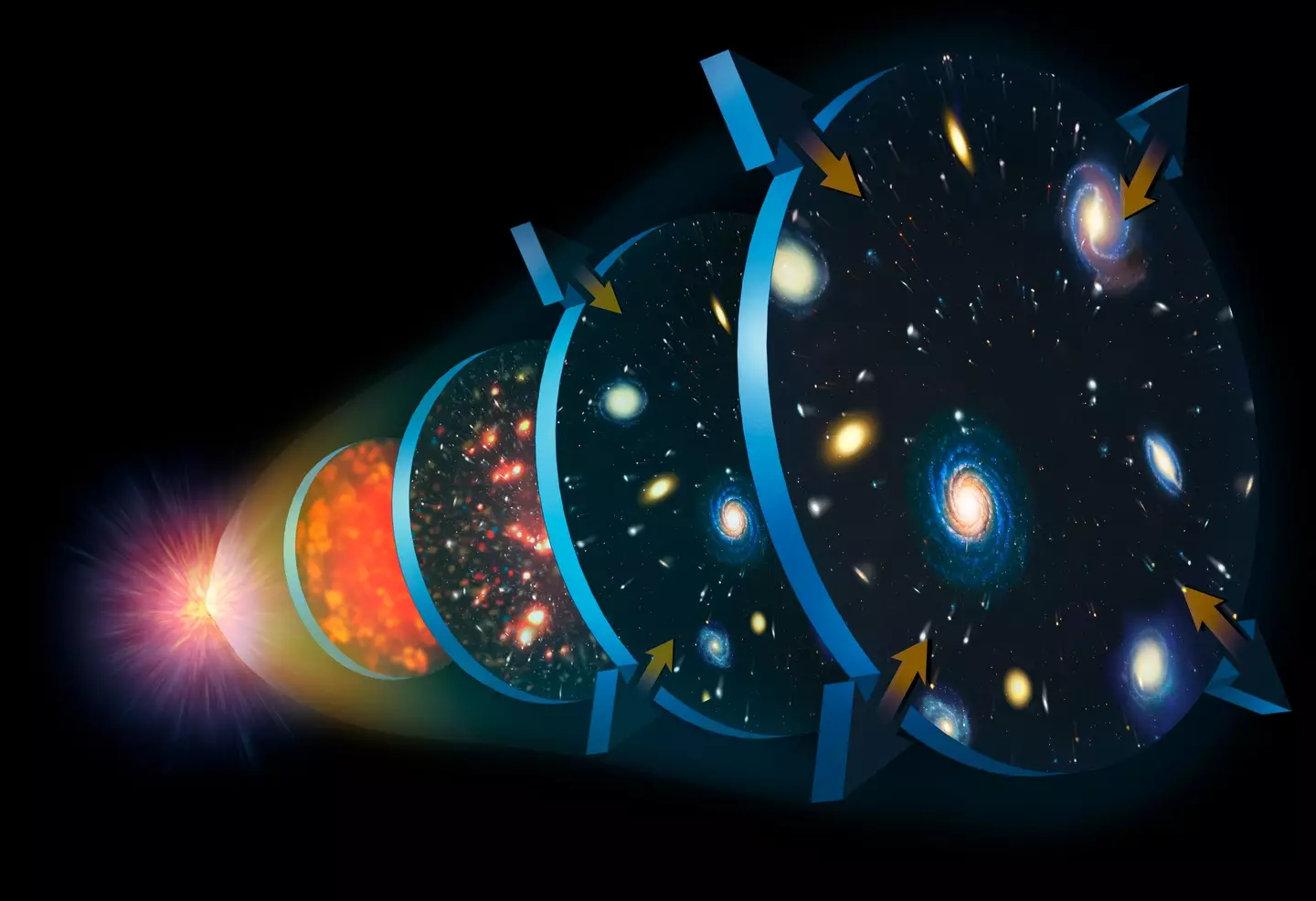
The origins of the universe remain a mystery, but as the human race continues to reach for the stars, scientists are trying to unpick the truth of our past. While we've been told that the Big Bang brought the universe as we know it into existence some 13.8 billion years ago, there are obvious questions about what came before.
With NASA finally putting humans back on the Moon for the first time since 1972, and Elon Musk setting his sights on colonizing Mars, others have busied themselves with trying to decipher the Big Bang.
Some wild theories claim the Big Bang didn't even happen, while others think there's a mirror universe hiding behind it. Even though there might not be any definitive answers, that hasn't stopped scientists from searching for them.
Speaking on Alex O'Connor's Within Reason podcast, the host was joined by Niayesh Afshordi, a professor in the Department of Physics and Astronomy at the University of Waterloo, as well as science communicator and YouTuber Phil Halper.
Advert

The pair wrote Battle of the Big Bang: The New Tales of Our Cosmic Origins, opening up about what really happened all those eons ago.
When O'Connor asked Afshordi to explain why the Big Bang might not have been the start of the universe, the professor explained how the Big Bang is only where we start to understand the universe in a way we can speak right now. Referring to the hot, dense state, Afshordi admits that things get more and more 'fuzzy' the further we go back: "The earliest we can use the laws of physics, and we have direct ways of kind of testing what we say about the Big Bang, is maybe a minute or so after the so-called initial singularity."
It was here that elements like hydrogen, helium, lithium, and deuterium were forged in the Big Bang and the stars. As for what came before, Afshordi admitted: "Going before that, we have ideas, but then we kind of go on a limb. We take our ideas and then try to extrapolate them to their logical conclusion."
He says that reverse-extrapolating only works to a degree, and while Stephen Hawking and Roger Penrose were hypothesizing about the singularity back in the '60s, it might not be as black and white.
According to Afshordi, there are four singularity assumptions that don't necessarily align with the Big Bang. This includes the idea that gravity isn't always attractive on a larger scale, being proved by the idea that the universe is expanding, the notion of another dimension, the hypothesis that time loops and time machines can't exist, and how the rules of mechanics go against Einstein's theory of general relativity.
In their book, Afshordi and Halper include around 25 different models explaining what the Big Bang could've been and whether each suggests the universe has a beginning. Overwhelmingly, most of them say no.
Halper chimed in to add: "We're talking about, not the beginning of the universe, but rather the end of our current theories. What we need are better theories. So, it might be that Einstein's theory of general relativity tells us the Big Bang was the beginning, but almost nobody in physics thinks that Einstein's theory of general relativity is applicable at the Big Bang.”
Concluding that the universe wasn't necessarily small at the time of the Big Bang, the crux of the theorizing is that it was denser and hotter in the past.